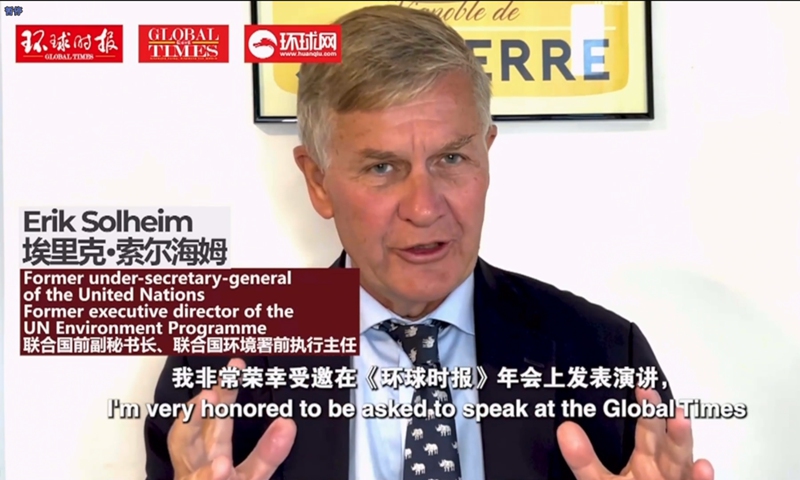We should have a rules-based global order with same rules for everyone: former UN under-secretary-general

The Global Times Annual Conference 2025, themed, "Moving forward in Partnership: Resonance of Values between China and the World," is held in Beijing on Saturday. In the first session, experts and scholars engaged in discussions on the topic, "Exploring the path of great power relations: differences and consensus." In a video speech at the conference, Erik Solheim, former under-secretary-general of the United Nations and former executive director of the UN Environment Programme, said that "we should have a rules-based global order, but with the same rules for everyone."
Solheim said that the 21st century will be multipolar, but it can be a fundamentally unstable century, because there are so many problems which need to be taken into account. In terms of how we can make stability in the 21st century, he noted, "We need a rules-based global order. The concept of a rules-based global order has sometimes been understood, like in the West, as one set of rules for the West and another set of rules for the rest … I hear they say that the sovereignty of Ukraine is sacrosanct, but you cannot care less for the sovereignty of Palestine."
The answer to this Western hypocrisy is not to say we should not have a rules-based global order; it is to say we should have a rules-based global order, but with the same rules for everyone, Solheim stressed.
When discussing how to establish a rule-based global order, Solheim stated, "As the underpinning on[of] this new global order, I will suggest two principles. The first is respect." He then mentioned the "Hehe" culture of China. In today's world, it means that we should have harmony between nations even if they are not the same, but we should work together, Solheim added.
The second principle is dialogue, he said, adding that when there are different views in solving conflicts, bringing economic growth, or creating an ecological civilization, we should have dialogue as to how we achieve that.
"If you base the 21st century on these two principles of respect and dialogue, and if you look to establish a set of global rules which work the same way for all nations and all individuals of this world, then we are on the path to make the 21st century a much better and much more successful time for humanity," Solheim said.